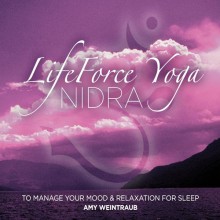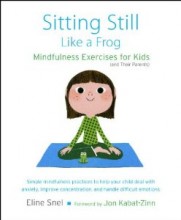Are you feeling fatigued? There could be many reasons to feel tired, but as a person in recovery from years of depression, when I feel consistently tired, I need to ask myself if I’m repressing strong emotion. I know that when I can release that emotion on my yoga mat, I experience a resurgence of energy. Once my unconscious isn’t exerting so much effort in repressing an emotional truth, I feel exuberant once again. Believe me, if you practice yoga with attention to your breath and to the immediate sensations arising in your body, whatever needs to be seen and released will. And often that release comes without a story attached.
I’m sitting in front of my computer as I write, as you likely are as you read, knowing we should both get up and stretch! (I didn’t, but I paused, and took three 4:4 count breaths, and I recommend that you do this too.) I’m also back in a boot, having fractured another small metatarsal bone, so if you see me at Esalen or SYTAR or Kripalu or at the Cape Cod Institute this summer, don’t be surprised. I still practice yoga every day and can ride a bike, but I’m off the Zumba floor for a while.
I look forward to breathing, chanting, and moving with you on and off the mat this late spring and summer! Read on for a review of another great resource for kids and their parents and educators, and for more validation for why we do what we do—Read the research!
Research: LifeForce Yoga Nidra Significantly Improves Mood
Researchers at the University of North Texas Health Science Center – Texas College of Osteopathic Medicine looked at the impact of the LifeForce Yoga Nidra to Manage Your Mood (guided yoga meditation usually done in a supine position) on twelve subjects who scored as moderately depressed, as measured by the Beck Depression Inventory (BDI). The subjects where taught yoga nidra in the context of a psychotherapy session and then given the LifeForce Yoga Nidra to Manage Your Mood CD for home practice. After three weeks of home practice, participants in the study were measured again. Median scores on the BDI went from 30 to 16 at the third study visit, representing a change in level of depression from moderate depression to mild mood disturbance. The researchers noted a decrease in anxiety reflected in Median Beck Anxiety Inventory scores, which decreased from 27 to 13, representing a change in anxiety from moderate to very low.
The LifeForce Yoga Nidra to Manage Your Mood (LFYN) CD has three tracks. The first track is forty minutes, and the eight women in the study preferred that track. The second track is a little over twenty minutes, and that is the track that the two men in the study chose to use. The LFYN was written and recorded by Amy Weintraub, and is based on her studies of iRest Yoga Nidra with Richard Miller. To read the full study please click here. To purchase a copy of the CD used in the study please click here.
Mankar S, Cruser dA, Jordan M, Ingram J, Brown S. Effects of Utilizing Yoga Nidra on Reducing Symptoms of Depression and Anxiety in a Psychiatric Population. J Am Osteopath Assoc. 2012;112(8):543. Abstract C19.
Research: Prenatal Yoga Improves Moms’ Moods—Two New Studies
A mother’s stress during pregnancy has been linked with premature birth, low birth weight and developmental problems in young children and even teenagers. Anxiety during pregnancy has also been linked with post-natal depression. In the first study, the effects of prenatal Hatha yoga on cortisol, affect and depressive symptoms were investigated in 51 women. Twice during pregnancy, yoga group participants reported on affect and provided a saliva sample before and after a 90-min prenatal Hatha yoga session. Corresponding measures were obtained from yoga and control group participants on days of usual activity. Depressive symptoms were assessed in pregnancy and post partum. Cortisol was lower and positive affect higher on yoga compared to usual activity days. Negative affect and contentment improved more in response to the yoga session. Yoga group participants showed fewer postpartum symptoms. Findings indicate that prenatal Hatha yoga may improve current mood and may be effective in reducing postpartum depressive symptoms.
Bershadsky S1, Trumpfheller L2, Kimble HB3, Pipaloff D3, Yim IS4, “The effect of prenatal Hatha yoga on affect, cortisol and depressive symptoms,” Complementary therapies in clinical practice. 2014 May;20(2):106-13. doi: 10.1016/j.ctcp.2014.01.002. Epub 2014 Jan 24.
In a second paper published in the journal Depression and Anxiety, British researchers compared anxiety scores of women who attended a yoga class every week for eight weeks to those who received normal antenatal treatment. Dr James Newham, a research associate at Newcastle University’s Institute of Health and Society, said, “It was not a small effect either. This has the potential to really help mothers who are anxious about giving birth.” A single session of yoga was found to reduce self-reported anxiety by one third and stress hormone levels by 14%. Similar findings were made at both the first and final session of the eight-week course.
Research: Laughing Your Way to a Better Brain
A new study found that laughter can improve short-term memory and recall among older adults. Older adults may have age associated memory deficiencies. However,” the researchers say, positive, enjoyable, and beneficial humor therapies [can] improve these deficiencies.”
Researchers at Loma Linda had a test group of healthy adults watch 20 minutes of uninterrupted humorous video. A control group was told to relax, without reading or talking. Following the sessions, memory tests and saliva samples were recorded to monitor memory and salivary cortisol, the stress hormone. Researchers found people who watched the funny videos exhibited much better memories and were able to recall more of the recent past, while the stress hormone was lowered. Twenty minutes a day of quality laughter, according to researchers, is a great way to boost memory, lower stress, and improve your overall quality of life.
Think about laughing in the shower, while driving, or taking a laughter yoga class. “Fake it until you make it,” because the body chemistry doesn’t know the difference. And while you’re at it, every time you practice a twisting posture on your mat or in your chair, lift the corners of your mouth.
Bains, G.S., et al., “The Effect of Humor on Short-Term Memory in Older Adults: A New Component for Whole-Person Wellness,” Advances in Mind Body Medicine, 2014 Spring;28(2):16-24.
Research: Yoga Reduces Insomnia
Our bodies change as we age in ways that that affect sleep. Undiagnosed and untreated insomnia may impair our daily function and reduce our overall quality of life. Insomnia is also a risk factor for accidents and falls that are the main cause of accidental deaths in older adults.
Researchers in Jerusalem examined the efficacy of a yoga intervention for the treatment of insomnia, enhanced quality of life, and to see its overall acceptance by and applicability to a population of men and women over 60. The yoga group participated in 12 weeks of classes, held twice a week. The yoga routine included yoga postures, meditative yoga, and daily home practice of meditative yoga.
The study used a number of self-report assessments for both sleep quality and mood. For sleep quality, the researchers used: Karolinska Sleepiness Scale (KSS), the Epworth Sleepiness Scale (ESS), and the Pittsburgh Sleep Quality Index (PSQI), and daily sleep and practice logs. For mood, the researchers used: the Depression Anxiety Stress Scale long form (DASS-42) and the Profile of Mood States short form (POMS-SF). Study subjects also completed a health survey (SF-36) and mobile at-home sleep studies. Compared with controls, the yoga group showed significant improvements in a range of subjective factors, including overall sleep quality; sleep efficiency; sleep latency and duration; self-assessed sleep quality; fatigue; general well-being; depression; anxiety; stress; tension; anger; vitality; and function in physical, emotional, and social roles. The researchers concluded that yoga was shown to be safe and improved sleep and quality of life in older adults with insomnia. They also noted that outcomes depended on practice compliance. Yoga is dose dependent! The more you practice, the better you sleep and the better you feel.
Halpern J, Cohen M, Kennedy G, Reece J, Cahan C, Baharav A., “Yoga for improving sleep quality and quality of life for older adults,” Alternative Therapies in Health and Medicine. 2014 May-Jun;20(3):37-46.
Review: Sitting Still Like a Frog Mindfulness Exercises for Kids (and their parents) by  Eline Snel
Eline Snel
Reviewed by Ellen Campbell. Ellen teaches yoga to children and adults in Tucson, Arizona. She is a LifeForceYoga Level I practitioner and author of the Youthful Yogis Blog.
Eline Snel’s book, Sitting Still Like a Frog, is proof that good things come in small packages. Just one hundred pages long– and compact enough to fit in a purse or small tote bag–the book offers an engaging introduction to mindfulness meditation for children and their parents.
As founder of the Academy for Mindful Teaching and director of Mindfulness Matters, a training program for school age children, Ms. Snel’s commitment to combating stress in the lives of young people is inspiring. The breadth of her work is indeed impressive, as is her ability to distil the essentials of mindful-living into a book that is at once inviting, informative and practical for parents, teachers and kids.
Sitting Still Like a Frog begins with an overview of what it means to be mindful. The author states: “Mindfulness is nothing other than present-moment awareness, an open and friendly willingness to understand what is going on in and around you” (Sitting Still Like a Frog, p. 2). This is followed by a discussion on learning to observe thoughts, feelings and sensations without allowing them to define who we are, and a chapter on breath in which Ms. Snel shares techniques for observing the depth and rhythm of the breath in order to “bring friendly attention to how we are doing, right now.”
Interspersed within each of the ten chapters of this book are mindfulness exercises that adults and children can do together. In the back of the book readers will find a CD with ten mindfulness exercises, narrated by Myla Kabat-Zinn. Children will love listening to these exercises which include “Sitting Still Like a Frog,” “The Spaghetti Test” and “The Secret of the Heart Chamber,” just to name a few. Ms. Kabat-Zinn’s voice is calm and reassuring as she guides listeners to present moment awareness. In “First Aid for Worries,” children are taught to shift their attention out of their head and down into their belly. The narrator explains that: “deep down in the abdomen all is calm. There are no worries. There are no fights. There is peace and intense quiet.” In “The Pause Button” young listeners learn to take the time to note how they are doing, to “look at the inner self with curiosity and without judgment.”
Eline Snel’s work demonstrates a compassionate understanding of the effects of stress on the developing brain as well as a heartfelt commitment to combat this stress by teaching youngsters to “live in the present moment without judging or ignoring anything” (Sitting Still Like a Frog, p.3). She offers concrete examples of the types of stress that children are under and provides concise language to help individuals experience open-minded, nonjudgmental awareness. Many adults have worked years to arrive at a place of friendly self- acceptance. How wonderful that Eline Snel offers tools to support children on this journey as well.
Sitting Still Like a Frog is published by Shambahala Publications. Information about Eline Snel’s Mindfulness Matters method and the Academy for Mindful Teaching can be found at http://www.academyformindfulteaching.com/mindfulness.
NEWS: Symposium on Yoga Therapy and Research – Early Bird expires on May 14th

Please join me at the Symposium on Yoga Therapy and Research (SYTAR 2014), June 5-8, Austin, TX, where I will be co-chairing a Common Interest Community Session on Mental, Emotional and Spiritual Health, June 5, 1:30-5:00 pm, along with LifeForce Yoga Research Director Susan Steiger Tebb, PhD, LSW, RYT. It was hard to choose from the many outstanding proposals submitted from those active in the field of yoga therapy, treating the psycho-spiritual-emotional needs of slum dwelling children in India, victims of sexual abuse, anxiety-ridden patients in dental offices, and so many others from around the world. The six speakers we have chosen will give fifteen-minute talks modeled on “TED Talks.” Register Today!
Throughout the weekend we will be learning from and sharing our work with yoga and research professionals like Lorenzo Cohen, PhD, MD Judith Hanson Lasater, PT, PhD, Michael Lerner, Nischala Joy Devi, PhD, Vasant Lad, BAMS, MaSC, Jnani Chapman, Larry Payne PhD, Richard Miller, PhD, Susi Amendola, Janice Gates, Kate Holcombe, Gary Kraftsow, Lee Majewski, and many others doing the hands-on work of yoga therapy.
News: Professional Training Opportunities – CEUs
Kripalu Center – LifeForce Yoga Practitioner Training for Anxiety and Depression – Level 1
Certification training for health and yoga professionals with guest teachers Dr. Richard Brown & Dr. Patricia Gerbarg and a faculty of mental health and yoga professionals. (66 hours). Register today!
Cape Cod Institute – LifeForce Yoga: Empowering Your Clients to Manage Their Moods
Learn to adapt evidence based yoga practices for a clinical setting (15 hours). Register today!
To see which 800-hour Yoga Therapy Training Programs accept the LFYP Training as an elective, click here.